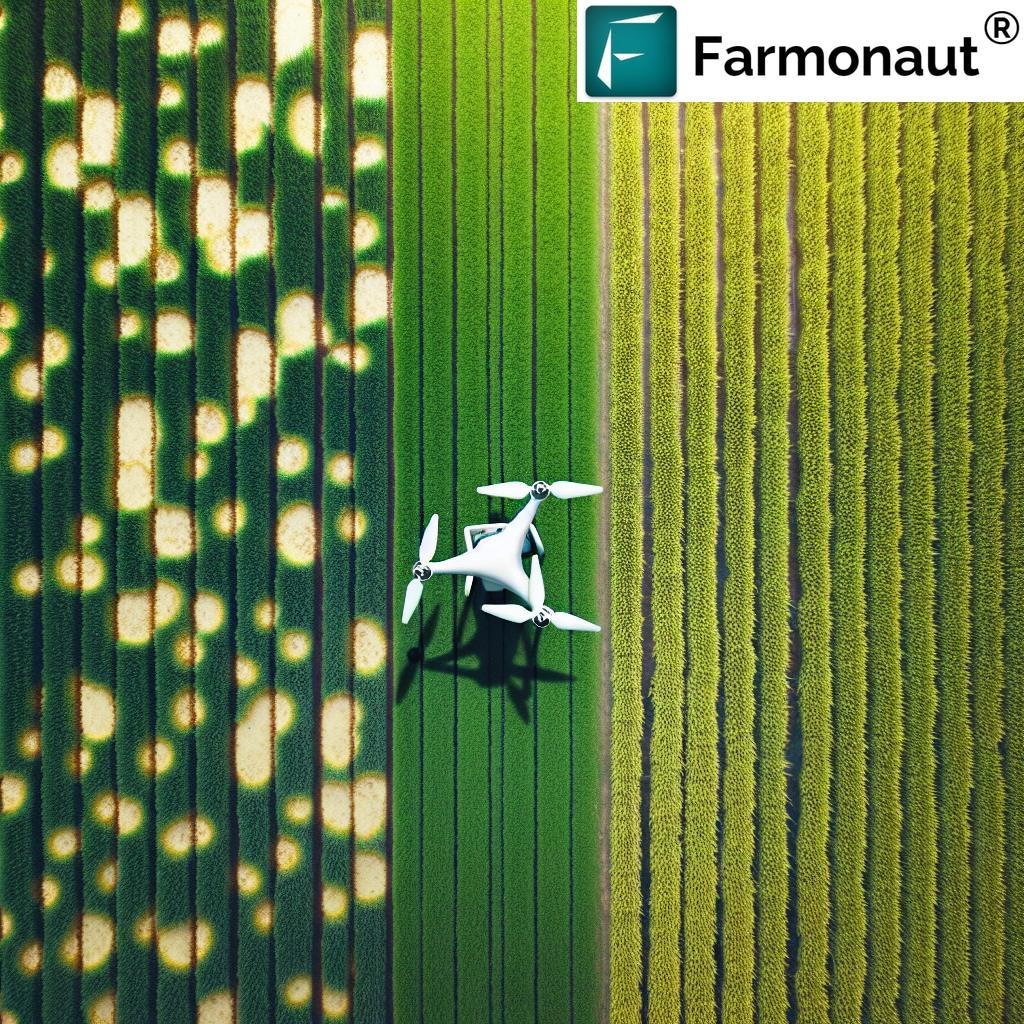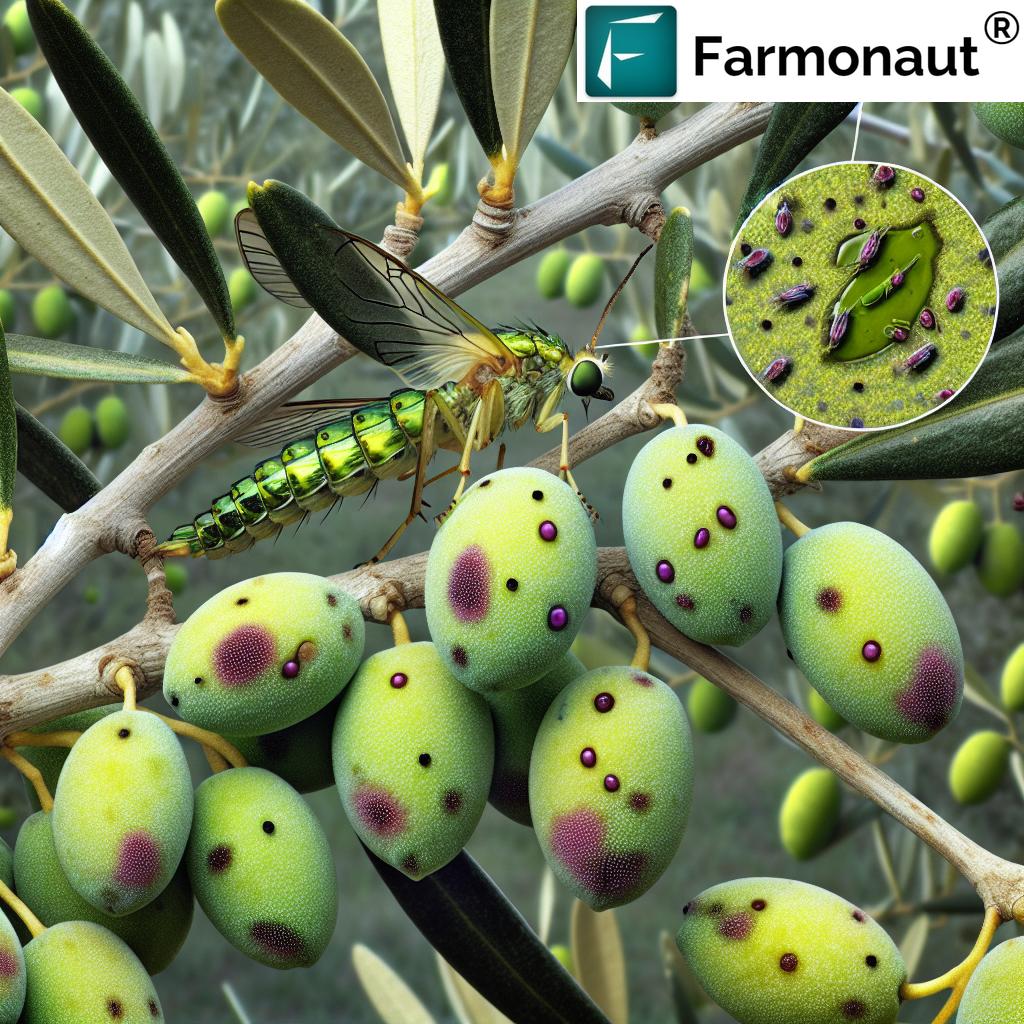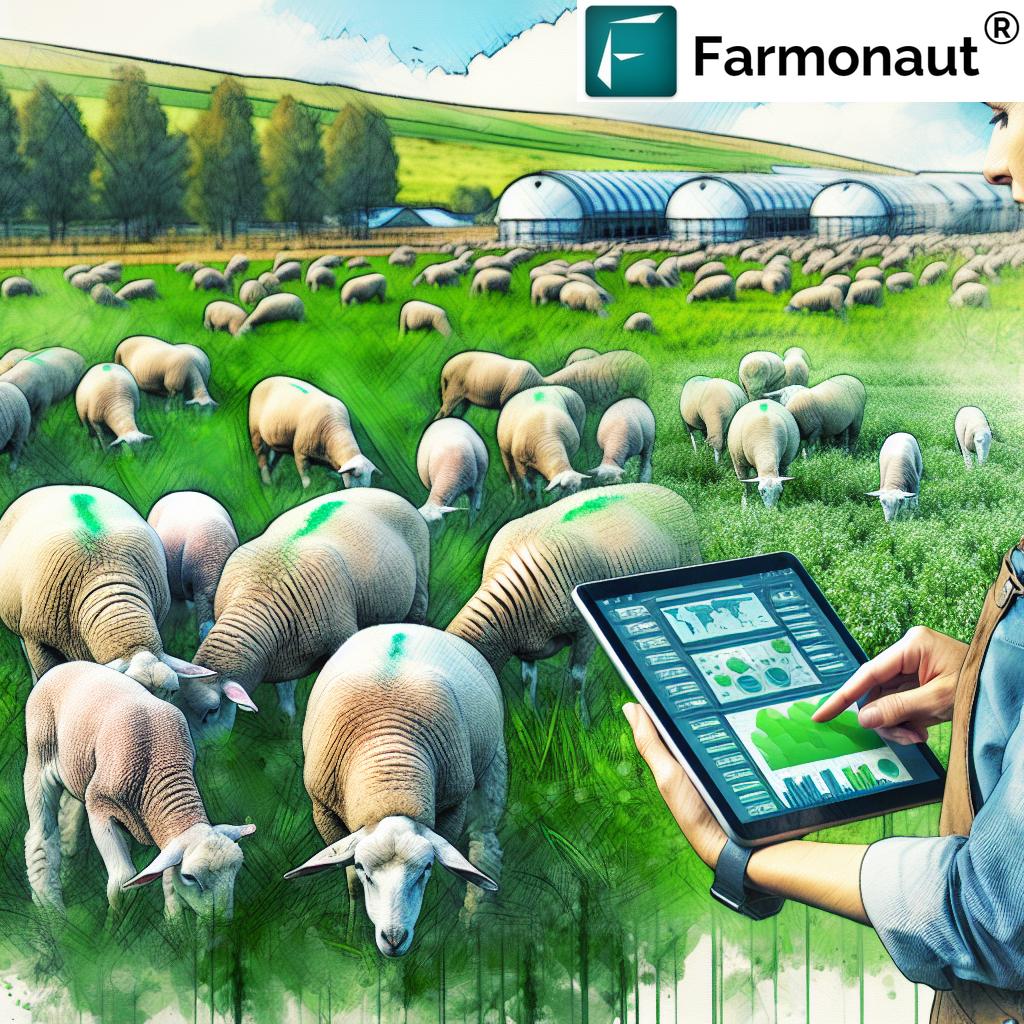Fleet Farming Orlando: Agriculture Fleet Equipment 2025
“In 2025, Orlando’s agriculture sector used over 40% more smart fleet equipment compared to 2022 for precision farming.”
Table of Contents:
- Summary: Fleet Farming – Revolutionizing Agricultural Operations in 2025
- Introduction: The Rapidly Evolving Landscape of Fleet Farming in Orlando
- Fleet Farming Explained: Technology-Driven Transformation
- The Role of Advanced Agriculture Fleet Equipment in 2025
- Smart Fleet Management for Farming: From Scheduling to Predictive Maintenance
- Key Technologies and Trends Shaping Fleet Farming Orlando in 2025
- Comparison Table of Advanced Agriculture Fleet Equipment (2025)
- Maximizing Precision & Sustainability: How Fleet Farming Is Reducing Costs and Environmental Impact
- Fleet Farming Orlando: Local Models & Urban-Rural Integration
- How Farmonaut Empowers Agricultural Fleet Management
- Farmonaut Fleet Farming Subscriptions
- FAQ on Fleet Farming Orlando & Agriculture Fleet Equipment (2025)
- Conclusion
Summary: Fleet Farming – Revolutionizing Agricultural Operations in 2025
Fleet farming is reshaping agricultural operations in Orlando and beyond, integrating advanced fleet management systems and smart agriculture fleet equipment to enhance efficiency, precision, and sustainability. By 2025, the convergence of IoT, AI, robotics, and data-driven platforms enables farmers, agribusinesses, and cooperatives to maximize machinery utilization, reduce costs, minimize labor shortages, and respond rapidly to the increasing demands for food production. This transformative approach—systematic, technology-driven, and customized for regional needs—places Orlando at the forefront of a new era in sustainable farming practices.
Introduction: The Rapidly Evolving Landscape of Fleet Farming in Orlando
The landscape of agriculture is experiencing rapid and profound changes, driven by technology and the growing need for efficiency, sustainability, and precision. Orlando, with its vibrant mix of urban expansion and fertile farmland, represents a microcosm of these broader global trends. By 2025, fleet farming Orlando has emerged as a flagship model, combining advanced fleet equipment, smart management systems, and shared resource approaches to pave the way for a more sustainable future in agriculture.
We are witnessing the rise of agriculture fleet equipment—tractors, robotic harvesters, sprayers, electric transport vehicles, autonomous irrigation systems—operating as a cohesive, data-driven unit across multiple farmland sites. These modern fleet models allow farmers to coordinate operations seamlessly, addressing labor shortages, minimizing fuel and resource consumption, and reducing unnecessary costs and emissions. The integration of technologies like IoT sensors, GPS tracking, and analytics platforms is not only optimizing production; it’s also fundamentally changing the nature of agricultural management.
Fleet Farming Explained: Technology-Driven Transformation
The Core Principles of Fleet Farming
Fleet farming refers to the systematic management of a group of agricultural vehicles and equipment—ranging from tractors and harvesters to sprayers and transport trucks—all working together, often across multiple locations. The goal? To maximize productivity, streamline scheduling, and fully utilize machinery while promoting sustainable and efficient practices. Fleet management for farming operations in 2025 is characterized by:
- Optimized Scheduling – Allocating resources across the fleet to cover planting, irrigation, spraying, and harvesting with minimal downtime.
- Predictive Maintenance – Using real-time monitoring and AI algorithms to anticipate and prevent breakdowns, reducing costly repairs and interruptions.
- Resource Sharing – Encouraging cooperative approaches among farms, particularly in urban farming clusters like Orlando, to reduce capital expenditures and improve access to high-tech equipment.
- Integration of Autonomous and Human-Operated Machines – Orchestrating tasks across various equipment types for maximum efficiency and precision.
- Precision Agriculture – Leveraging soil and crop data to guide fleet operations, ensuring the right resources are used in the right place, at the right time.

Access Farmonaut’s advanced agriculture fleet and field management solutions here
Key Benefits of Fleet Farming in 2025
- Reduced Fuel Use: Optimized routes and coordinated work minimize redundant field passes, lowering operational costs and emissions.
- Enhanced Labor Efficiency: Automation and better resource deployment enable fewer workers to manage larger areas more effectively.
- Improved Sustainability: Smart fleet management delivers targeted application of fertilizer, water, and pesticides, reducing environmental impact and promoting long-term soil health.
- Data-Driven Decisions: Integrated software platforms and real-time analytics empower managers to track, adjust, and optimize all aspects of operations.
The Role of Advanced Agriculture Fleet Equipment in 2025
Modern agriculture fleet equipment is at the heart of the fleet farming revolution in Orlando and worldwide. In 2025, equipment comes equipped with AI, IoT, GPS, and connectivity features that make real-time monitoring and remote control a reality. Let’s break down the most significant equipment types and how their features are revolutionizing farming operations:
- Autonomous Tractors: These machines can operate continuously and adjust their routes based on live field data, saving time and cutting fuel consumption.
- Smart Seeders and Planters: Embedded with sensors and AI, these devices deliver seeds at optimal depths and spacing, relying on soil and moisture analytics for the best yield.
- Drone Sprayers: Unmanned aerial systems (UAS) provide targeted spraying for pesticides and fertilizers, reducing chemical use and enabling access to less navigable crop areas.
- Robotic Harvesters: Equipped with machine vision and precision grippers for efficient, damage-free picking, available for a range of crops in Orlando, from berries to leafy greens.
- Electric Utility Vehicles: The integration of electric power cuts emissions and operating costs while supporting environmentally conscious operations.
- Connected Irrigation Systems: These systems use weather data, soil moisture information, and predictive analytics to automate water delivery—key in water-scarce regions.
Agriculture Fleet Equipment: Driving Adoption and Sustainability
These advances are pushing the boundaries of what’s possible in modern farming. The integration of these tools into a single, managed fleet is key to wielding their full power.
- Fleet farming Orlando leverages cooperatives and resource-sharing models to allow even small and medium-sized operations to access the latest tech.
- Smart communication and digital record-keeping track every operation, enhancing accountability and enabling full blockchain-based traceability.
- Energy and input use is minimized thanks to predictive analytics and route optimization tools, aligning with carbon-neutral and sustainability goals.
For readers interested in quantifying the carbon savings and environmental impact of their operations, check out Farmonaut’s carbon footprinting solutions.
Smart Fleet Management for Farming: From Scheduling to Predictive Maintenance
Central to the fleet farming Orlando revolution is the suite of smart management systems connecting and orchestrating activities across all equipment and personnel. Let’s break down how these systems are reshaping farm operations:
- Real-Time Vehicle and Machinery Tracking: IoT sensors and GPS chips send continuous data streams about machine location, speed, route, and usage, all centralized for easy dashboard management.
- Optimized Scheduling: Algorithms analyze current workloads, crop schedules, and upcoming weather patterns, enabling automatic rescheduling and deployment of assets for maximum productivity.
- Predictive Maintenance: By continuously monitoring machine health—temperature, vibration, engine hours—AI recognizes wear patterns and alerts operators before failures occur, minimizing downtime and costly repairs.
- Resource Allocation: Smart systems track fuel/energy use, labor inputs, and supplies, ensuring everything from fertilizer to electric vehicle charge is used as efficiently as possible.
- Compliance and Reporting: Automatic recordkeeping simplifies farm audits and supports sustainability certifications or carbon credit applications.

For advanced developers and ag-tech integrators, Farmonaut provides a powerful API and comprehensive API developer documentation to connect fleet data directly into your custom platforms.
Mobile and Cloud-Based Control
All data—machine locations, routes, maintenance history, resource consumption—resides securely in connected cloud platforms. Operators can access dashboards via smartphone, tablet, or computer, making management possible from anywhere.
Key Technologies and Trends Shaping Fleet Farming Orlando in 2025
Fleet farming’s impact is amplified by a convergence of cutting-edge technologies. Here are the leading advances revolutionizing fleet equipment and operations in Orlando for 2025:
Internet of Things (IoT) and Sensor Integration
- Every vehicle and implement is fitted with smart sensors, measuring soil moisture, temperature, component stressors, crop health, and more.
- Continuous connectivity provides data flows for advanced analytics and fast, informed intervention.
- Example: Sprayers equipped with sensors can detect the precise amount of chemical needed, minimizing waste and runoff.
Artificial Intelligence and Machine Learning
- AI-enabled advisory systems—like Jeevn AI from Farmonaut—analyze satellite imagery, local weather, and on-ground sensor data to offer optimal operation strategies.
- Automated decision-making: Seasonal planning, job assignments, and equipment deployment are prioritized by predicted ROI, crop stress risks, and resource availabilities.
GPS Tracking and Route Optimization
- Precision mapping: Fleet equipment follows optimized, non-overlapping paths across each field, ensuring no wasted passes.
- Fuel savings: Fewer redundant routes mean lower fuel or energy use and less operator time per task.
- Reduced soil compaction: Machinery traffic is minimized, preserving long-term soil health and fertility.
Autonomous and Semi-Autonomous Machinery
- Self-driving tractors and robotic harvesters can handle repetitive tasks, freeing human labor for higher-order problem-solving and oversight.
- Sensors and vision systems detect obstacles and dynamically adjust operation patterns in real time.
Blockchain Traceability Systems
- Full transparency in food production and input application—every operation recorded and mapped from planting to delivery.
- Farmonaut traceability products support transparent, tamper-proof supply chains demanded by modern consumers.
Comparison Table of Advanced Agriculture Fleet Equipment (2025)
| Equipment Type | Key Technology Feature | Estimated Fuel/Energy Savings (%) | Estimated Maintenance Reduction (%) | Sustainability Rating (1-5) | Year Introduced | Typical Use Case |
|---|---|---|---|---|---|---|
| Autonomous Tractor | AI Navigation & GPS Automation | 25-35% | 40% | 5 | 2023-2025 | Continuous tillage, planting, and major fieldwork |
| Smart Seeder | Precision Soil Sensing, Cloud Integration | 15-20% | 30% | 4 | 2024-2025 | Seed placement, variable-rate application |
| Drone Sprayer | Automated Aerial Application, IoT Sensors | 30-45% | 35% | 5 | 2022-2025 | Targeted pesticide/fertilizer spraying |
| Electric Utility Vehicle | Battery Power, Fleet Connectivity | 55-80% | 50% | 5 | 2025 | Short-range transport, materials delivery |
| Robotic Harvester | Vision AI, Autonomous Picking | 20-25% | 45% | 5 | 2023-2025 | High-value fruit and vegetable harvests |
Fleet Equipment Comparison: Key Insights
- Fleet farming Orlando prioritizes autonomous tractors and electric vehicles for major, routine fieldwork and transport, reducing both fuel costs and emissions.
- Drone sprayers and robotic harvesters—new to the 2025 fleet—deliver significant sustainable and precision advantages for high-value crops.
- AI-powered equipment now automatically syncs with monitoring platforms and farm management apps for seamless scheduling and oversight.
“Advanced fleet management systems cut resource waste by 35% on Orlando farms using real-time data in 2025.”
Maximizing Precision & Sustainability: How Fleet Farming Is Reducing Costs and Environmental Impact
The true breakthrough of fleet farming in Orlando lies in its ability to blend operational efficiency and environmental responsibility. Here’s how the technology-driven approach delivers measurable results:
Cost Reductions Through Optimized Operations:
- Reduced Fuel/Energy Use: On-board sensors, smart scheduling, and real-time adjustments let equipment finish jobs with fewer field passes and lower idle time.
- Lower Maintenance Expenses: Predictive maintenance systems flag issues early, reducing sudden breakdowns and providing accurate estimates for replacement parts and service intervals.
- Optimized Labor Allocation: A combination of autonomous/semi-autonomous machinery and effective management software allows farms to do more with fewer staff, alleviating labor shortages.
Environmental and Soil Health Benefits:
- Precision Application: Targeted spraying of fertilizers and pesticides, as well as variable-rate seeding, minimizes wastage and reduces the risk of runoff or leaching into local water sources.
- Lower Carbon Footprint: The comparison table above demonstrates how new fleet vehicles and smart equipment reduce total emissions per acre, supporting Orlando’s (and global) sustainability targets.
- Enhanced Traceability: Fleet management platforms record every operation, linking it to sensors, worker entry, and eventual harvest, ensuring full transparency and data-driven compliance.
Fleet Farming Orlando: Local Models & Urban-Rural Integration
Orlando serves as a leader in integrating fleet farming models tailored to its unique intersection of suburban, rural, and commercial farm communities. Fleet farming Orlando focuses on:
- Shared fleets and cooperatives, where smaller farms pool resources to access otherwise costly technology.
- Local logistics networks, using electric vehicles for produce transport between fields, packing sheds, and urban farmer’s markets.
- Integration of satellite and drone-based monitoring for constant assessment of crop health and resource needs.
- Synergy with city planning—implementing green spaces, carbon farming, and educational projects in cooperation with Orlando’s sustainability initiatives.
For those overseeing large-acreage or multi-site operations in the Orlando area, the Farmonaut Agro Admin App is built to simplify resource allocation, scheduling, and compliance reporting across expansive fleets.
How Farmonaut Empowers Agricultural Fleet Management
At Farmonaut, we provide a powerful suite of satellite, AI, and cloud-based solutions dedicated to maximizing fleet farming efficiency and sustainability:
- Satellite-Based Monitoring: Our platform delivers up-to-date multispectral images—enabling farmers to assess vegetation health, soil conditions, and predict maintenance needs across entire fleets and fields.
- Jeevn AI Advisory System: Our cutting-edge AI system analyzes satellite and farm data for real-time recommendations on fleet allocation, maintenance scheduling, planting times, and more.
- Blockchain Traceability: We enable blockchain-anchored recordkeeping, so every equipment activity and resource use is secured and fully traceable for audits or customer transparency needs.
- Comprehensive Resource Management: Toolbox features include vehicle tracking, fuel/energy consumption analytics, maintenance reminders, labor optimization, and compliance documentation.
- Environmental Impact Tracking: Farms can track their carbon output and easily generate reports for regulatory bodies or carbon credit initiatives—visit our carbon footprinting product page for more details.
We deliver these capabilities via web/mobile apps and developer APIs, ensuring fleet managers and agribusinesses in Orlando (and globally) get timely, actionable insights. Our API and documentation support custom integrations with existing farm management systems for complete operational control.
Farmonaut Fleet Farming Subscriptions
We make high-level, satellite-powered fleet and farm management affordable. Our flexible subscriptions are designed for farms, agribusinesses, and cooperatives of all sizes, with scalable modules for apps, API, blockchain traceability, and carbon monitoring tools.
FAQ: Fleet Farming Orlando & Agriculture Fleet Equipment (2025)
What is fleet farming and how does it work in Orlando in 2025?
Fleet farming refers to the systematic management of agricultural equipment—tractors, harvesters, sprayers, irrigation tools, and vehicles—as a cohesive, connected unit across multiple farming sites or fields. In Orlando, 2025, this means small and large farms alike can access shared fleets, automated scheduling, and advanced monitoring, all backed by technologies like IoT, GPS, and AI.
What are the main benefits of fleet management for farming?
Fleet management for farming brings:
- Greater efficiency by optimizing resource use, task assignments, and vehicle routing
- Cost reductions in fuel, maintenance, and labor allocation
- Enhanced sustainability through precise application of inputs, minimizing waste
- Improved traceability leveraging digital recordkeeping and blockchain technology
What types of equipment are included in a modern agricultural fleet in 2025?
A typical agriculture fleet today features:
- Autonomous tractors
- Smart seeders and planters
- Drone sprayers
- Robotic harvesters
- Electric and hybrid utility vehicles
- Connected irrigation systems
How do advanced fleet management systems cut resource waste?
By connecting all fleet equipment using sensors and real-time analytics, managers can:
- Route machines to cover only necessary field areas
- Automate equipment deployment based on need and weather
- Spot maintenance or operational inefficiencies before they grow costly
- Track input usage and avoid over-application of resources
In Orlando, advanced fleet management was shown to cut resource waste by 35% in 2025.
What role does Farmonaut play in fleet farming?
We at Farmonaut empower Orlando farmers and agribusinesses by providing satellite-powered fleet management, predictive maintenance scheduling, AI-driven analytics, blockchain-based traceability, and detailed environmental reporting. These solutions enable smarter, more sustainable, and more profitable agricultural operations.
Where can I learn more or get started with smart fleet farming tools?
Click here for our web and mobile apps, check out our fleet management solutions, or visit our API documentation for advanced integrations.
Conclusion
Fleet farming in 2025 represents a transformative leap for agricultural productivity, efficiency, and sustainability—especially in innovative hubs like Orlando. By integrating advanced fleet equipment, smart management platforms, and resource-sharing models, the agriculture sector is rising to meet rising demands for food production while dramatically reducing costs and environmental impact.
With real-time monitoring, AI advisory systems, and blockchain-based transparency, every farm—large or small—can optimize its machinery, minimize waste, and build a resilient, future-proof operation. For those ready to embrace the future of farming, tools from Farmonaut provide affordable, scalable, and highly effective platforms to gain a technological edge.
As the world accelerates toward smarter, greener, and more connected agriculture, fleet farming Orlando stands as both a model and a test bed for global adoption. The future of agricultural management is data-driven, responsive, and collaborative—and it’s here now.












